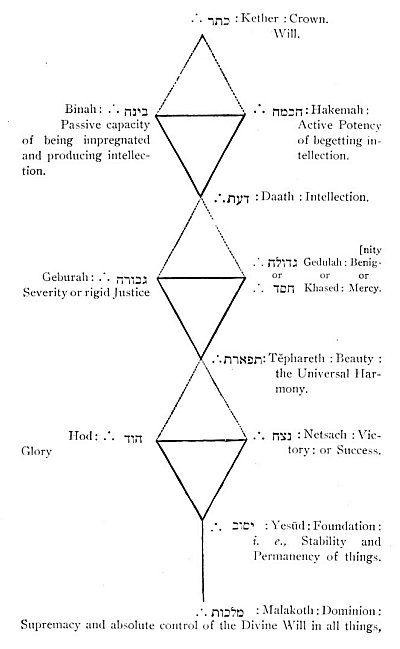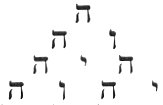p. 725
united to the true, is distinguished from it, only because it is truth put in practice. The good is obligatory. These are two indivisible but not identical ideas. The idea of obligation reposes on the idea of the Good. In this intimate alliance, the former borrows from the latter its universal and absolute character.
The obligatory good is the moral law. That is the foundation of all morality. By it we separate ourselves from the morality of interest and the morality of sentiment. We admit the existence of those facts, and their influence; but we do not assign them the same rank.
To the moral law, in the reason of man, corresponds liberty in action. Liberty is deduced from obligation, and is a fact irresistibly evident. Man, as free, and subject to obligation, is a moral person; and that involves the idea of rights. To these ideas is added that of merit and demerit; which supposes the distinction between good and evil, obligation and liberty; and creates the idea of reward and punishment.
The sentiments play no unimportant part in morality. All the moral judgments are accompanied by sentiments that respond to them. From the secret sources of enthusiasm the human will draws the mysterious virtue that makes heroes. Truth enlightens and illumines. Sentiment warms and inclines to action. Interest also bears its part; and the hope of happiness is the work of God, and one of the motive powers of human action.
Such is the admirable economy of the moral constitution of man. His Supreme Object, the Good: his law, Virtue, which often imposes upon him suffering, thus making him to excel all other created beings known to us. But this law is harsh, and in contradiction with the instinctive desire for happiness. Wherefore the Beneficent Author of his being has placed in his soul, by the side of the severe law of duty, the sweet, delightful force of sentiment. Generally he attaches happiness to virtue; and for the exceptions, for such there are, he has placed Hope at the end of the journey to be travelled.
Thus there is a side on which morality touches religion. It is a sublime necessity of Humanity to see in God the Legislator supremely wise, the Witness always present, the infallible judge of virtue. The human mind, ever climbing up to God, would deem the foundations of morality too unstable, if it did not place in God the first principle of the moral law. Wishing to give to the
p. 726
moral law a religious character, we run the risk of taking from it its moral character. We may refer it so entirely to God as to make His will an arbitrary degree. But the will of God, whence we deduce morality, in order to give it authority, itself has no moral authority, except as it is just. The Good comes from the will of God alone; but from His will, in so far as it is the expression of His wisdom and justice. The Eternal Justice of God is the sole foundation of Justice, such as Humanity perceives and practises it. The Good, duty, merit and demerit, are referred to God, as everything is referred to him; but they have none the less a proper evidence and authority. Religion is the crown of Morality, not its base. The base of Morality is in itself.
The Moral Code of Masonry is still more extensive than that developed by philosophy. To the requisitions of the law of Nature and the law of God, it adds the imperative obligation of a con-tract. Upon entering the Order, the Initiate binds to himself every Mason in the world. Once enrolled among the children of Light, every Mason on earth becomes his brother, and owes him the duties, the kindnesses, and the sympathies of a brother. On every one he may call for assistance in need, protection against danger, sympathy in sorrow, attention in sickness, and decent burial after death. There is not a Mason in the world who is not bound to go to his relief, when he is in danger, if there be a greater probability of saving his life than of losing his own. No Mason can wrong him to the value of anything, knowingly, himself, nor suffer it to be done by others, if it be in his power to prevent it. No Mason can speak evil of him, to his face or behind his back. Every Mason must keep his lawful secrets, and aid him in his business, defend his character when unjustly assailed, and protect, counsel, and assist his widow and his orphans. What so many thousands owe to him, he owes to each of them. He has solemnly bound himself to be ever ready to discharge this sacred debt. If he fails to do it he is dishonest and forsworn; and it is an unparalleled meanness in him to obtain good offices by false pretences, to receive kindness and service, rendered him under the confident expectation that he will in his turn render the same, and then to disappoint, without ample reason, that just expectation.

Moe is the founder of GnosticWarrior.com. He is a father, husband, author, martial arts black belt, and an expert in Gnosticism, the occult, and esotericism.






